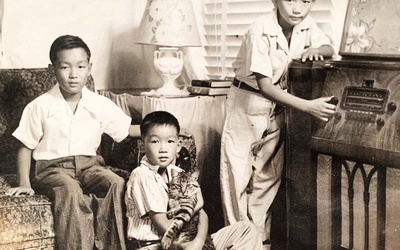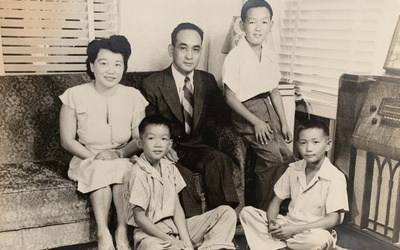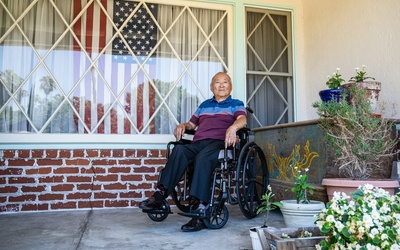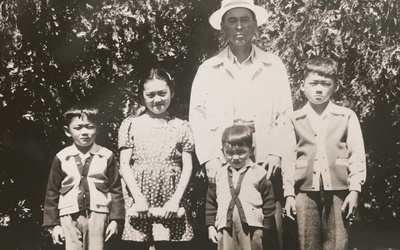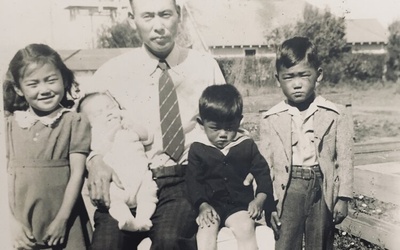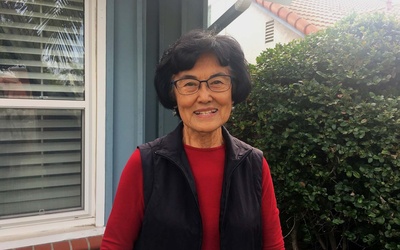Tessaku
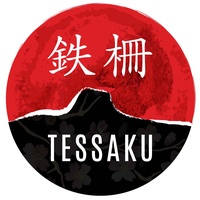
Tessaku was the name of a short-lived magazine published at the Tule Lake concentration camp during World War II. It also means “barbed wire.” This series brings to light stories of the Japanese American internment, illuminating those that haven’t been told with intimate and honest conversation. Tessaku brings the consequences of racial hysteria to the foreground, as we enter into a cultural and political era where lessons of the past must be remembered.
Stories from this series
Leland Inaba - Part 3
Nov. 14, 2021 • Emiko Tsuchida
Read Part 2 >> And I meant to ask you before, was your mother working before you left for camp in Riverside? She was my dad's receptionist at his office because, you know, he couldn't really afford he was just building up his practice. And so she answered the phone, made appointments and stuff like that. So she went to work every day and we had a housekeeper or a maid look after us. [Holly] If you're looking for vivid …
Leland Inaba - Part 2
Nov. 7, 2021 • Emiko Tsuchida
Read Part 1 >> So do you remember your parents saying anything about this tension or the war that had broken out between the two countries? No, they didn't talk about it. I think it was easier to handle hidden away or pushed to the background than to talk about it, you know because first of all, my dad was taken away right away because he was considered an alien. And so my mom had to take over everything else, …
Leland Inaba - Part 1
Oct. 31, 2021 • Emiko Tsuchida
“I think the main thing is that they had themselves had nothing to do with the problem between the two countries. There’s nothing you can do to promote or diminish it. It’s out of your hands. It’s almost like God’s will. What can we do?” — Leland Inaba Leland Inaba grew up on a farm in Riverside, California, a city nestled in the larger Southern California area known as the Inland Empire. Before the war, it was humming with Japanese …
Mary Iwami - Part 3
March 7, 2021 • Emiko Tsuchida
Read Part 2 >> What details do you remember from camp when the war ended? When the war ended and Japan surrendered, Tule Lake was filled with sounds of wailing older folks, especially women sitting on the ground, crying and hitting the dirt. I can recall that sadness and felt very sorry for them. Because there were so many pro-Japanese people, I just could not think, because they’re older, how would they get along? In time the fathers were permitted …
Mary Iwami - Part 2
Feb. 28, 2021 • Emiko Tsuchida
Read Part 1 >> When Pearl Harbor happened, do you remember that day? What happened to me, I don’t recall that day at all. I think it was because we were on a farm, we didn’t even know it was being bombed, probably. But my father knew about it because the menfolk talked. But we didn’t talk about it and to me, it didn’t register anything. I didn’t know what war was or anything. What do you recall about the …
Mary Iwami - Part 1
Feb. 21, 2021 • Emiko Tsuchida
“It was a struggle because once we got to the point where we could live in that little house that they built, everything was happy. And then this war happens, and they’re taken from their comfort.” — Mary Iwami Mary (Idemoto) Iwami remembers the day her parents’ life changed permanently and seemingly in an instant, disrupting their life as farmers in the agricultural sprawl of Salinas, California. After the bombing of Pearl Harbor, FBI agents came to their home to …

